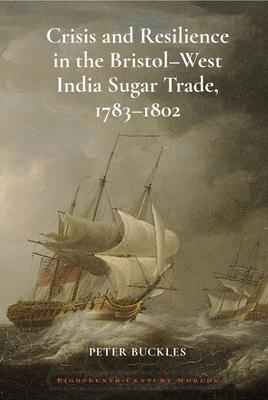Additional resources for this book are available on our Manifold site, which can be accessed via https: //liverpooluniversitypress.manifoldapp.org/projects/crisis-and-resilience
How did merchants deal with crises? From warfare to financial upheaval, from political machinations to the abolition of the slave trade, merchants and their networks in the eighteenth century faced a range of challenges. But they also demonstrated remarkable resilience. Providing new levels of detail on Britain's sugar trade, this authoritative account explores how Bristol's sugar merchants embodied cogs in the plantation machine, using their position of influence in Britain to maintain the production of sugar and violent systems of enslavement. It demonstrates how, as shipowners, these merchants protected their shipping, led the organisation of convoys, and took advantage of cheapening insurance. It reveals the inner workings of the sugar market and the strategies merchants used to remain profitable, showing how merchants navigated the transitions between peace and war. Finally, it uncovers their methods for managing credit and safeguarding their investments. Throughout, the nature of commerce in the eighteenth century is analysed in detail, from business networks to bills of exchange. Demonstrating meticulous, interdisciplinary research and thorough analysis of merchant business records, this book speaks broadly to the nature and experience of crisis in the eighteenth century and what this meant for the burgeoning systems of capitalism.
